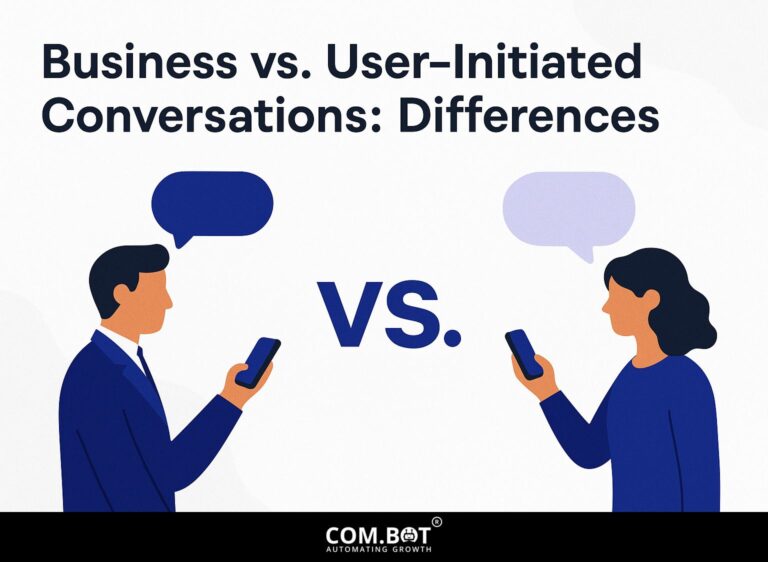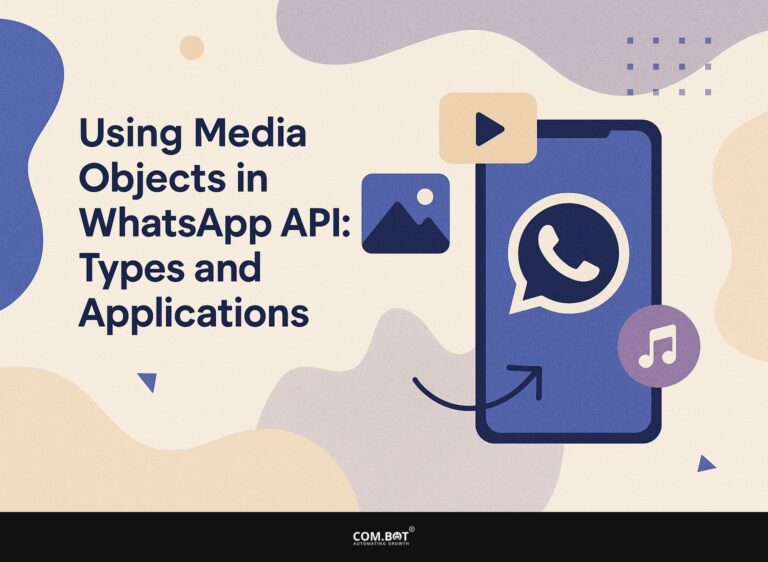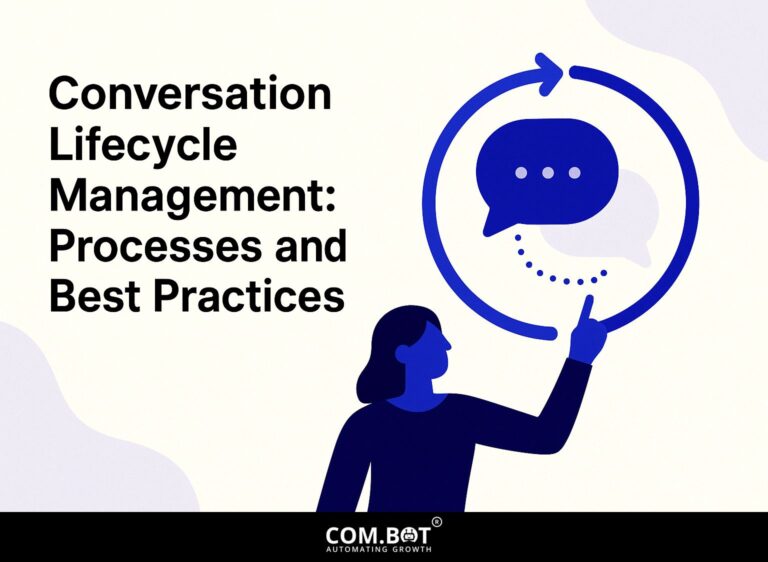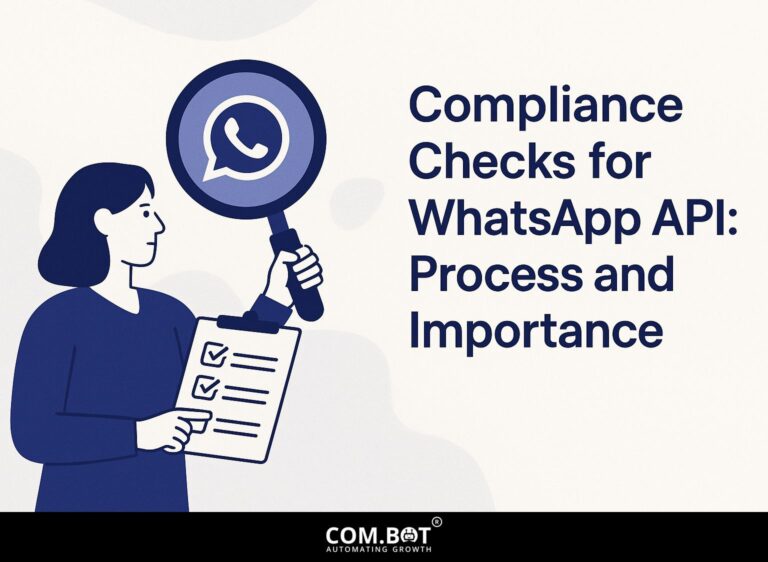WhatsApp Bot Integration: Benefits and Pricing
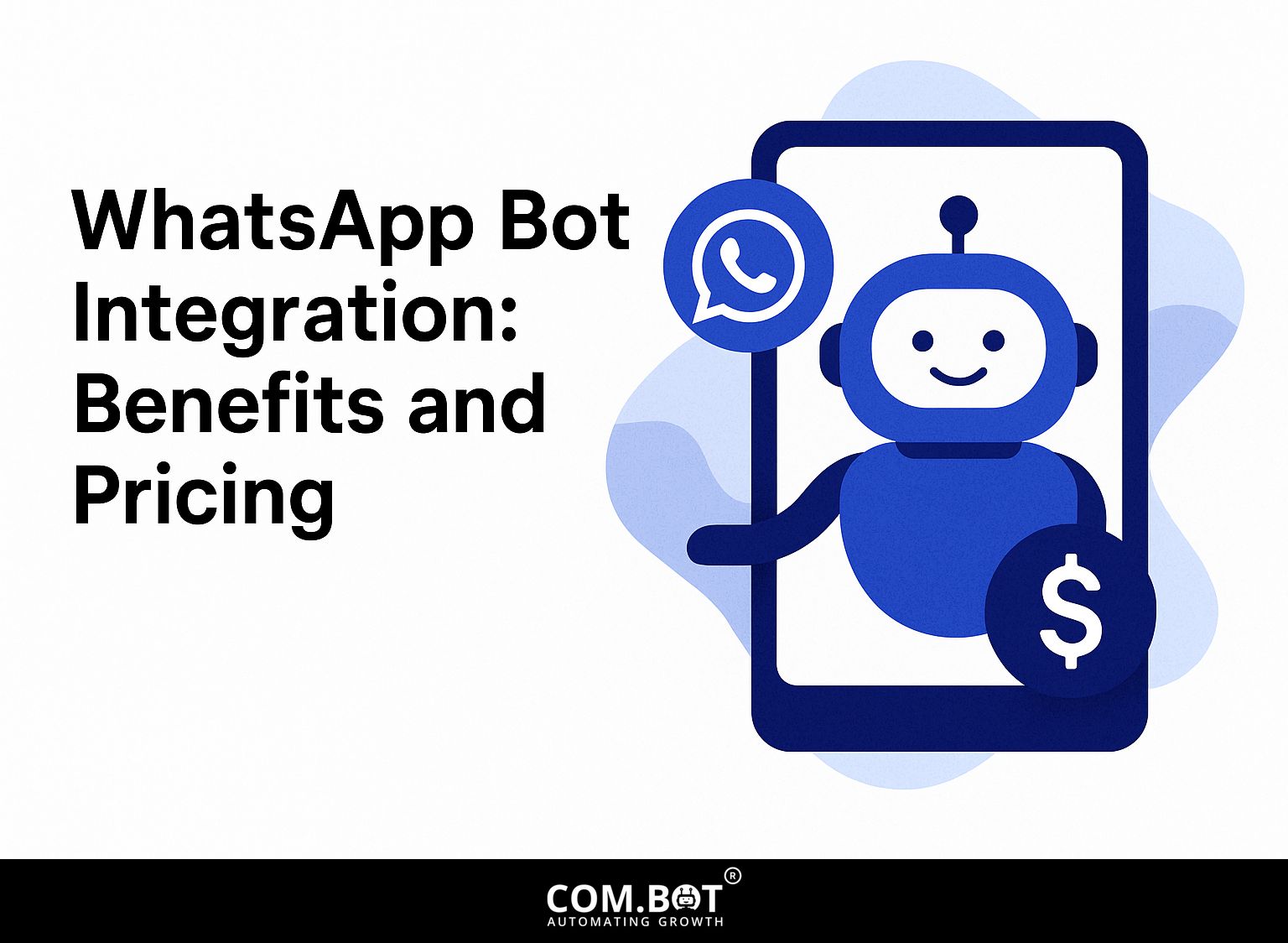
Use WhatsApp effectively by connecting a chatbot to your Business Platform. Ximena Portocarrero points out that using the WhatsApp Business API can improve how businesses communicate with customers, making it faster and more interesting. In this article, we’ll look at the benefits of using a WhatsApp bot, including better customer interaction, round-the-clock availability, and saving costs. We will explain the different pricing options, so you can choose the best one for your business.
Key Takeaways:
- WhatsApp bots offer automated messaging solutions that improve customer interaction, make support available more often, and lower expenses.
- Pricing models for WhatsApp bot integration include subscription-based and pay-as-you-go options, with factors such as features and message volume influencing costs.
- Successful case studies in various industries showcase the benefits and effectiveness of WhatsApp bot integration.
- 1 Benefits of WhatsApp Bot Integration
- 2 Pricing Models for WhatsApp Bot Integration
- 3 Factors Influencing Pricing
- 4 Case Studies: Successful Implementations
- 5 WhatsApp Bot Integration Metrics
- 5.1 Performance and Business Impact: Volume and Activity Metrics
- 5.2 Performance and Business Impact: Efficiency and Performance Metrics
- 5.3 Performance and Business Impact: User Experience and Satisfaction Metrics
- 5.4 Performance and Business Impact: Business Impact Metrics
- 5.5 Industry-Specific Examples
- 6 Frequently Asked Questions
- 6.1 1. What is WhatsApp Bot Integration and what are its benefits?
- 6.2 2. How can WhatsApp Bot Integration help my business?
- 6.3 3. Can WhatsApp Bot Integration help with lead generation?
- 6.4 4. What factors should I consider when choosing a WhatsApp Bot Integration service?
- 6.5 5. What is the pricing for WhatsApp Bot Integration services?
- 6.6 6. Can I customize my WhatsApp Bot Integration to fit my business needs?
1. What is a WhatsApp Bot?
A WhatsApp bot is a program that automatically manages communication on WhatsApp, able to manage questions and help with customer service tasks easily. These bots can respond to customer queries instantly, send proactive notifications, and provide ongoing support.
For example, Twilio’s API enables businesses to build custom bots that handle common questions automatically, which can greatly cut down response time.
Meanwhile, the WhatsApp Business API enables companies to send bulk messages for updates or promotions, enhancing customer engagement. With these tools, companies can make communication better, make sure customers get information fast, and reduce the tasks for human agents.
2. Importance of Automation in Messaging
Automating messaging through WhatsApp bots can increase efficiency and improve customer satisfaction, allowing brands to manage thousands of interactions simultaneously. By setting up a WhatsApp bot, businesses can make their customer service processes more efficient.
For example, setting up a chatbot with tools like Twilio or Chatfuel allows for instant replies to FAQs, which can lead to a 70% increase in response time efficiency, as reported by many brands.
Using AI features can customize responses to customer questions, which improves interaction. This method allows human agents to handle more difficult questions and increases operations without losing quality, improving the customer experience.
Benefits of WhatsApp Bot Integration
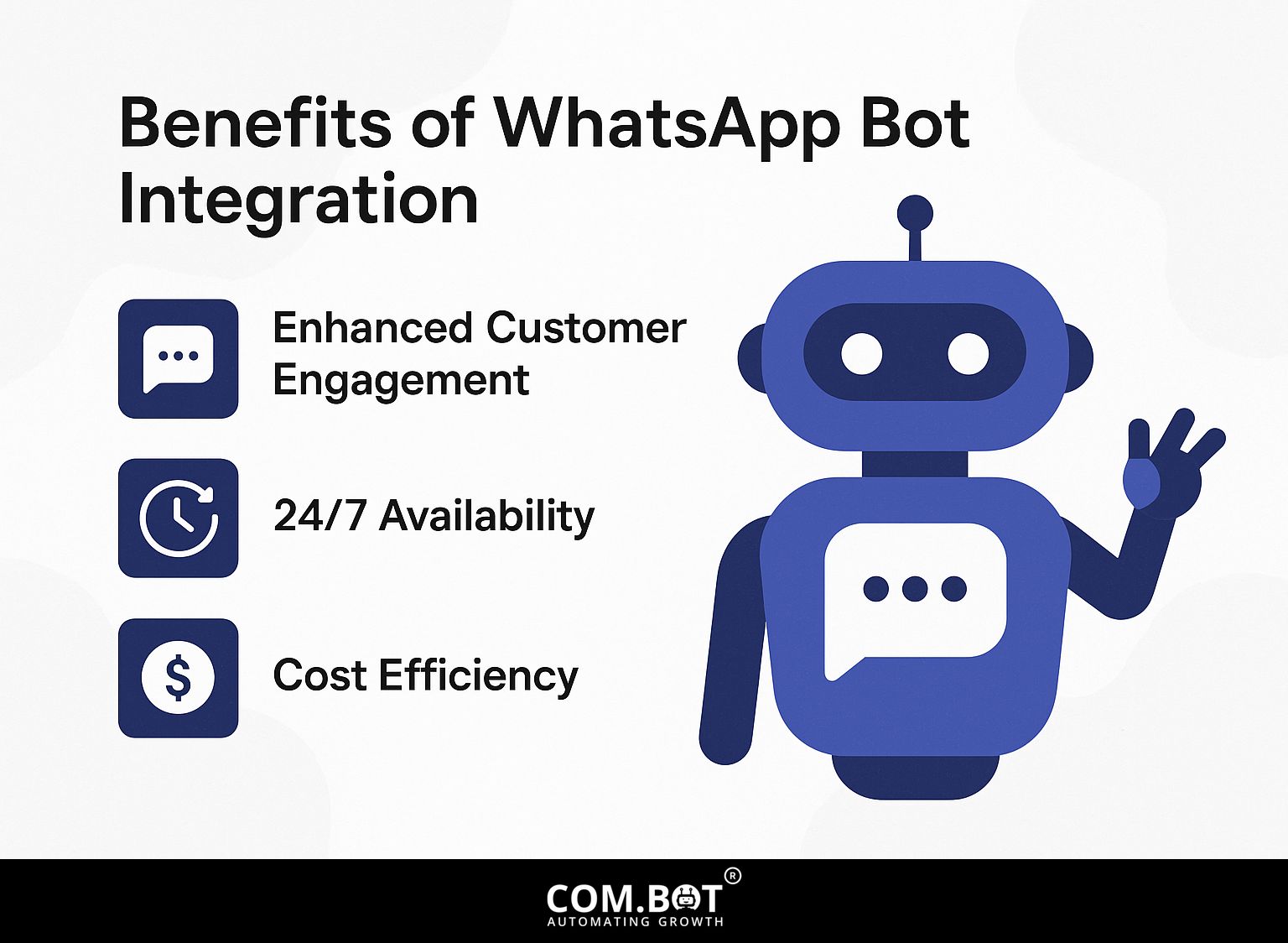
Adding WhatsApp bots offers many benefits, like better customer interaction, 24/7 service, and lower costs. For an extensive analysis of this trend, our comprehensive study on customer service bots on WhatsApp examines how these bots enhance customer service and their scalability.
1. Enhanced Customer Engagement
WhatsApp bots create customized chats that raise engagement rates by up to 60% compared to previous approaches.
Brands like Kommo use WhatsApp bots to send custom messages based on what customers do. If a customer leaves their cart without buying, the bot can send them a reminder and an exclusive discount.
Using tools such as Twilio or ManyChat allows businesses to implement these bots easily by setting up rules and triggers based on user behavior.
By examining how people respond, companies can improve their messages to achieve better engagement and loyalty.
2. 24/7 Availability
With 24/7 access, WhatsApp bots make sure customers get help right away, reducing the number of unanswered questions.
Companies such as Sendpulse successfully use WhatsApp bots to simplify customer service. By integrating tools such as Chatfuel or ManyChat, they design interactive flows that handle FAQs and common requests.
For example, rather than waiting for a human agent, users can instantly get information about order status or product details. This hands-on approach quickly solves problems and lets staff concentrate on more challenging issues, greatly improving customer satisfaction scores. Frequently analyzing data on interactions helps the bot give customized replies.
3. Cost Efficiency
Implementing WhatsApp bots can cut customer service costs by up to 30%, particularly through reduced staffing needs and lower messaging fees.
For a small e-commerce business managing 1,000 customer queries per month, hiring an agent might cost around $2,500 (based on a $15/hour wage for 10 hours a week).
If a WhatsApp bot costs $300 for setup and $50 monthly, the business could reduce monthly costs from $2,500 to approximately $800.
Every bot can handle multiple questions at the same time, providing fast responses and effectively managing frequent queries. This efficiency means businesses save about $1,700 monthly, reallocating those resources towards growth initiatives.
Pricing Models for WhatsApp Bot Integration
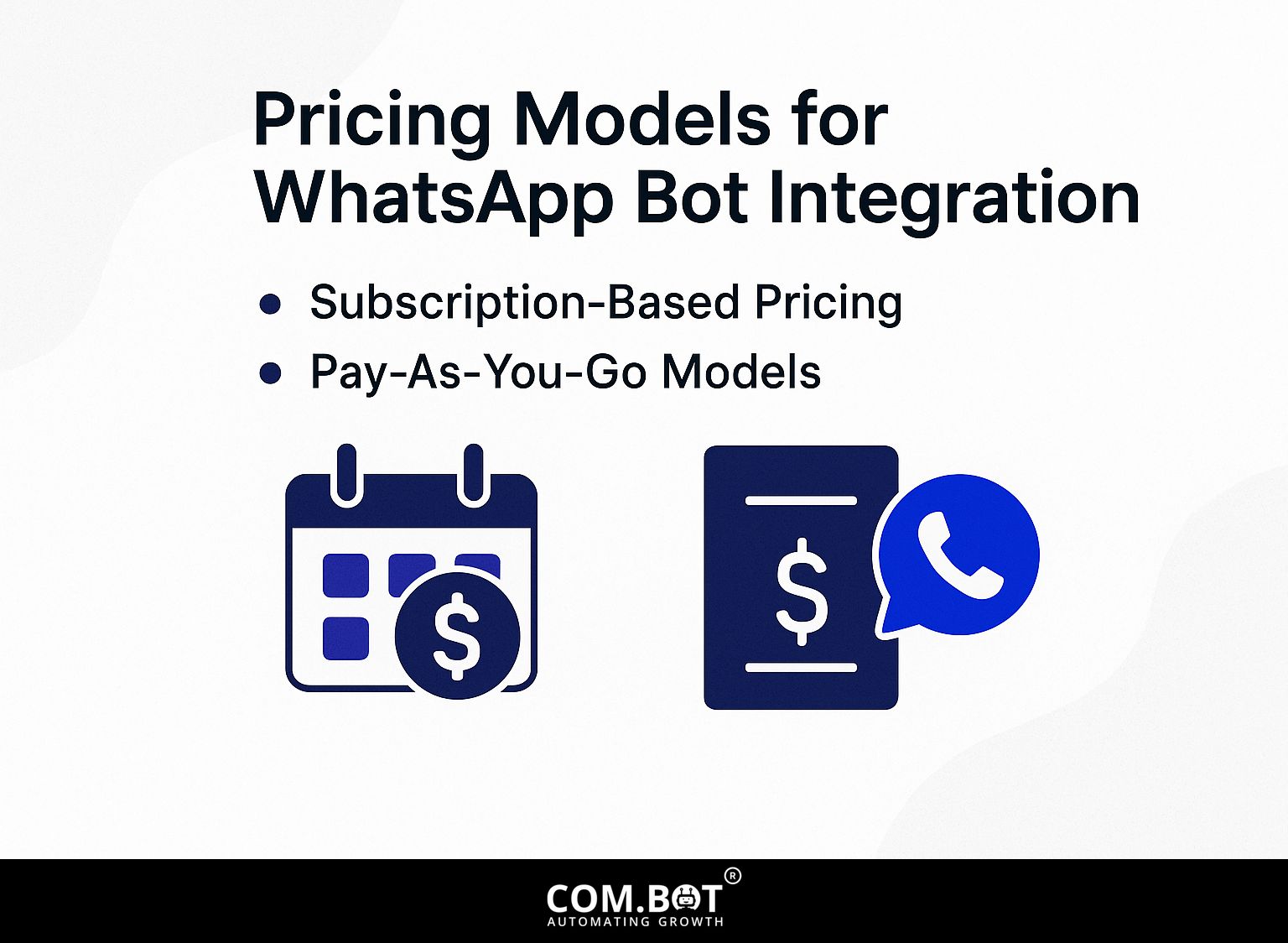
Knowing the different pricing options for adding a WhatsApp bot is important for businesses wanting to make the best use of their budget. Related insight: WhatsApp Chatbot Design: Steps and Examples offers detailed guidance on implementing these solutions effectively.
1. Subscription-Based Pricing
Subscription-based pricing typically ranges from $50 to $300 per month, depending on the features and level of customization required.
360Dialog offers a tiered pricing model, starting with a basic package at $50/month that supports essential messaging features but limits usage to 1,000 messages.
In contrast, Twilio’s plans begin at $15/month for 500 messages, giving you access to advanced APIs for broader functionality.
For businesses that send more messages, 360Dialog’s premium option costs $300 for up to 10,000 messages. Twilio offers a flexible pricing model where you pay based on the number of messages you actually use, which is great for expanding businesses. Consider your messaging needs and operational scale when choosing between these providers.
2. Pay-As-You-Go Models
Pay-as-you-go pricing lets businesses pay just for the messages they send, which is appealing for companies with changing messaging needs.
For example, using Landbot’s pay-as-you-go model, businesses typically pay around $0.01 to $0.05 per message, depending on the destination country.
In contrast, the WhatsApp Business API charges about $0.005 to $0.10 per message based on the user’s location and conversation type. This flexibility is especially useful for startups or businesses with seasonal changes, as it allows them to control costs by increasing or decreasing their messaging campaigns without being locked into a fixed monthly fee. By monitoring the number of messages, companies can predict costs and improve their communication plans.
Factors Influencing Pricing
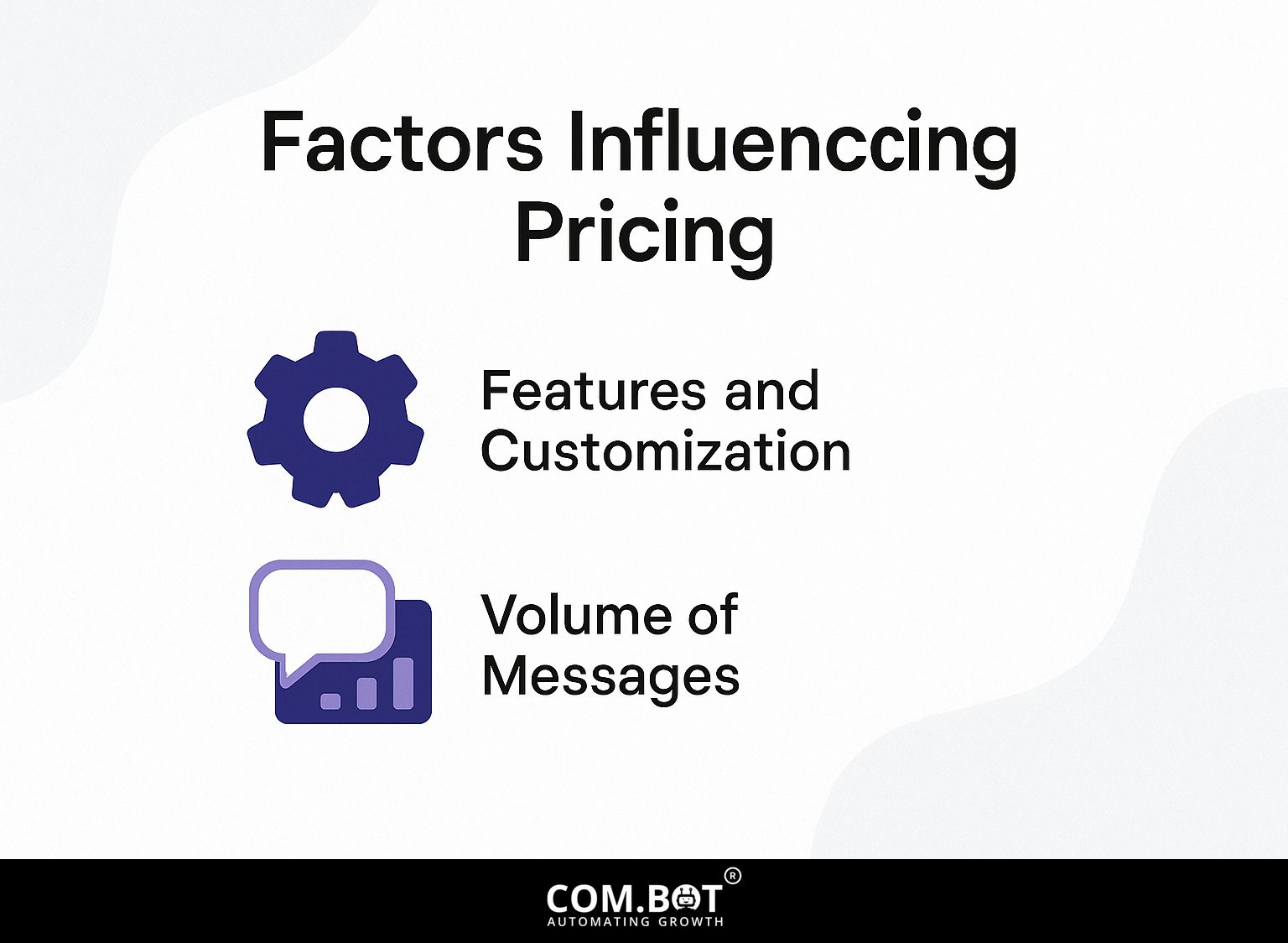
The cost of adding a WhatsApp bot depends on the features included, the level of tailoring it needs, and how many messages it handles. For more insights on this, consider exploring Customer Service Bots on WhatsApp: Advantages and… to understand the specific benefits and cost factors associated with WhatsApp customer service bots.
1. Features and Customization
Advanced features such as AI capabilities, multi-language support, and integration with CRM systems can significantly affect the overall cost of WhatsApp bots.
For example, incorporating AI features can double the costs, especially if you use services like OpenAI for natural language processing.
Multi-language support may require custom development, which could lead to an increase by around 20-30%. CRM integration can add additional licensing fees, often ranging from $10 to $100 per month.
It’s critical to assess your specific needs and budget accordingly. Consider platforms like Whaticket for customer support automation, which offers a flexible pricing model that can help balance these advanced functionalities.
2. Volume of Messages
Higher message volumes can lead to bulk pricing options, reducing the per-message cost significantly for businesses with extensive customer interactions.
To effectively negotiate better rates, companies should start by analyzing their messaging patterns. Use tools like CRM software to predict message volumes with accuracy.
Brands such as YaVendi! have used this data in discussions, highlighting their expected increase. Engaging in discussions about multi-channel communication needs can also lead to additional savings.
Presenting case studies demonstrating similar successes can strengthen your position, showing that volume commitment can yield cost-effective solutions. Acting early helps you secure favorable contract terms.
Case Studies: Successful Implementations
Looking at successful examples can show how adding a WhatsApp bot changes how businesses talk with customers. For instance, understanding the popularity and functionality of AI chatbots on WhatsApp (see how they work in WhatsApp AI Chatbots: Popularity and How They Work) can provide valuable insights into the transformative impact these bots have on customer interaction.
WhatsApp Bot Integration Metrics
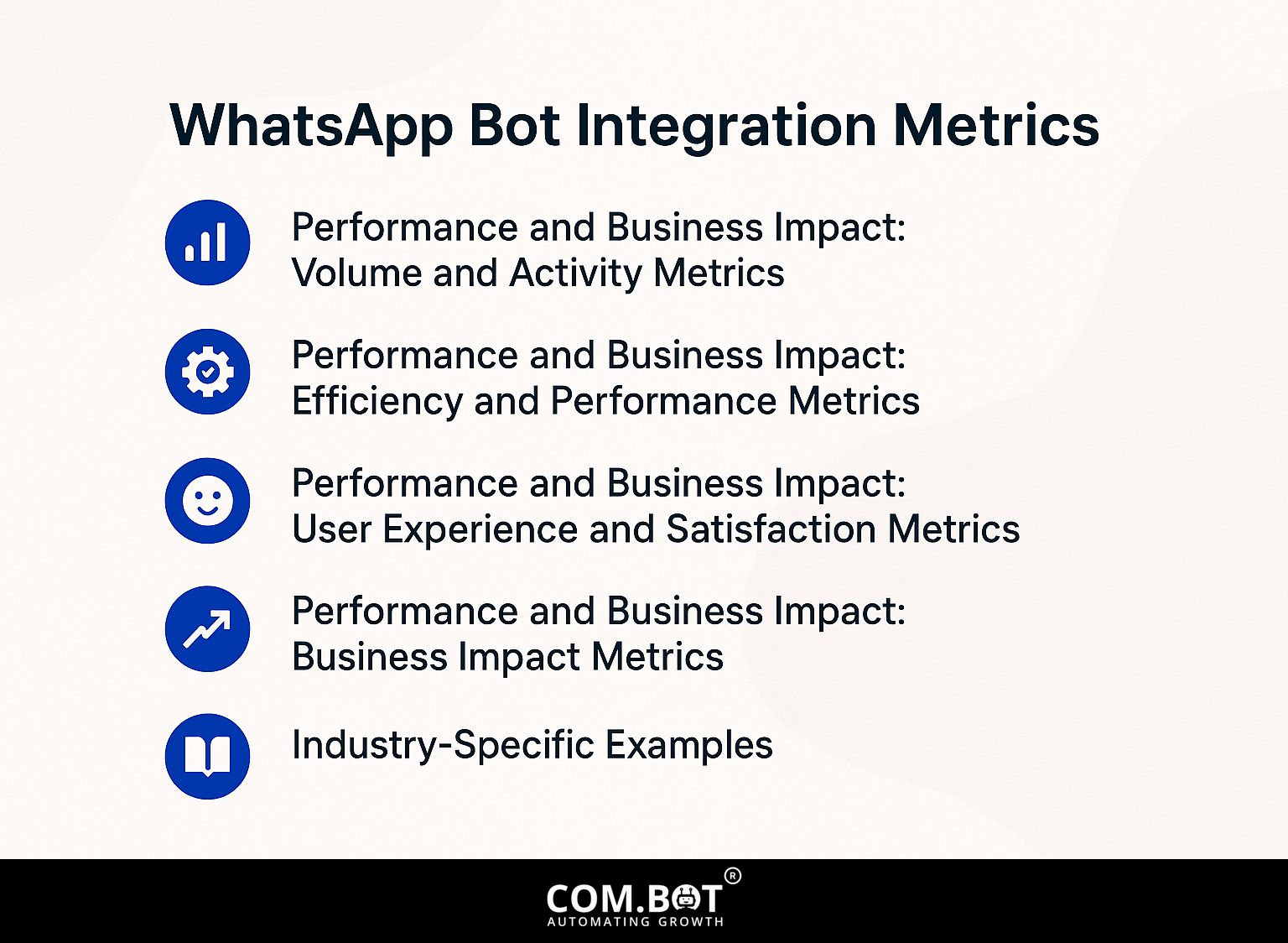
Performance and Business Impact: Volume and Activity Metrics
Performance and Business Impact: Efficiency and Performance Metrics
Performance and Business Impact: User Experience and Satisfaction Metrics
Performance and Business Impact: Business Impact Metrics
The WhatsApp Bot Integration Metrics give detailed information on how chatbots perform and affect business activities. The data covers a wide range of metrics, from volume and activity to user satisfaction and business impact, reflecting the effectiveness and efficiency of WhatsApp bots in customer interactions.
Volume and Activity Metrics indicate significant engagement with 200 million total conversations started. This substantial volume demonstrates the widespread adoption and user interaction with WhatsApp bots. Additionally, the 80% message open rate highlights the high level of engagement and interest from users, suggesting that messages sent through bots are well-received and likely to be read.
Efficiency and Performance Metrics reveal the operational effectiveness of the bots. The Chatbot Resolution Rate stands at 57%, indicating that more than half of the user queries are resolved without human intervention. The AI Understanding Rate is impressively high at 90% “, demonstrating the chatbot’s ability to understand and answer user questions correctly.” However, the Escalation Rate to Human Agents is 43% This indicates that many interactions still need help from humans, pointing out where bot training and AI skills can get better.
User Experience and Satisfaction Metrics emphasize positive user interactions with an impressive 95% Customer Satisfaction Rate. This high satisfaction level suggests that users find the chatbot interactions helpful and satisfactory. Moreover, the Average Response Time of 2 seconds highlights how fast the bot is at answering questions, helping users have a good experience by giving them answers quickly.
Business Impact Metrics showcase the tangible benefits of WhatsApp bot integration for businesses. The Conversion Rate is notable at 46.7%, indicating the bot’s effectiveness in turning interactions into conversions. Additionally, the bots have generated 58,000 leads, demonstrating their capability to drive business growth and generate potential customer interest.
Overall, the WhatsApp Bot Integration Metrics describe a very effective tool for interacting with customers and helping businesses expand. With large amounts of conversations, high user satisfaction, and strong business results, WhatsApp bots are extremely useful for modern companies that want to improve customer interactions and increase growth.
Industry-Specific Examples
For instance, e-commerce businesses using WhatsApp bots for customer inquiries report increased satisfaction ratings and faster response times.
A mid-sized online retailer shared an example of major change after including a WhatsApp bot. Initially facing delayed responses, the retailer saw a 60% reduction in reply times.
By using tools like Twilio for setup, they handled FAQs and order updates well. A fashion brand used a bot to give personal style advice, resulting in a 25% increase in additional sales.
The updates simplified how customers connect and increased participation, demonstrating the advantages of using automatic messaging.
Frequently Asked Questions
1. What is WhatsApp Bot Integration and what are its benefits?
WhatsApp Bot Integration is the process of connecting a chatbot to the messaging platform WhatsApp. This helps businesses manage their customer service, sales, and marketing tasks more effectively, providing benefits such as 24/7 availability, faster responses, and improved communication with customers.
2. How can WhatsApp Bot Integration help my business?
Linking a bot with WhatsApp can help your business in many ways. It can simplify customer communication, provide quick support, increase sales and conversion rates, and reduce human errors. It can also save time and resources, allowing you to focus on other important aspects of your business.
3. Can WhatsApp Bot Integration help with lead generation?
Yes, WhatsApp Bot Integration can be a powerful tool for lead generation. Bots can qualify leads, gather information about potential customers, and even schedule appointments or demos, all without the need for human intervention. This can save time and resources for your sales team and increase the efficiency of your lead generation efforts.
4. What factors should I consider when choosing a WhatsApp Bot Integration service?
When choosing a WhatsApp Bot Integration service, you should consider the pricing, features, and customization options. Look for a service that offers customizable chatbot templates, integration with other business tools, and advanced analytics. It’s also important to consider the level of customer support provided and the reputation of the service provider.
5. What is the pricing for WhatsApp Bot Integration services?
The pricing for WhatsApp Bot Integration services can vary depending on the provider and the features included. Some services may offer a free trial or a basic plan with limited features, while others may have a monthly or yearly subscription fee. It’s important to research different providers and compare their pricing and features to find the best fit for your business.
6. Can I customize my WhatsApp Bot Integration to fit my business needs?
Yes, most WhatsApp Bot Integration services offer customization options to fit your business needs. This can include branding the chatbot with your company’s logo and colors, creating custom workflows and responses, and integrating with other business tools. It’s important to choose a service that offers flexibility and customization options to make the most out of your bot integration.
